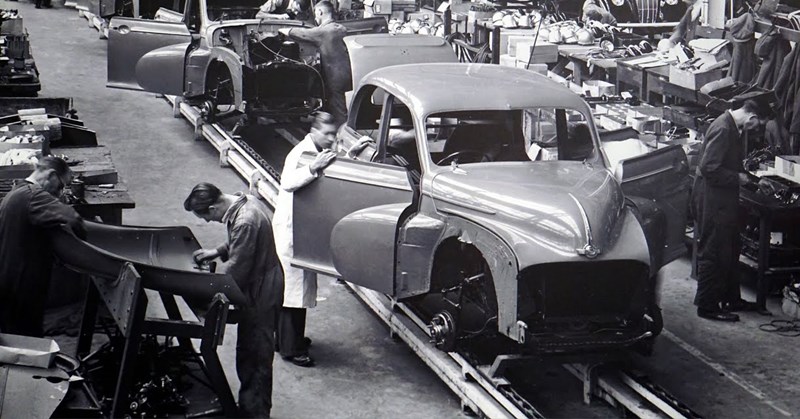
President Trump’s announcement that he intends to impose tariffs on foreign steel and aluminum produced what can only be described as hysteria across the admittedly narrow spectrum of establishment opinion. Missing from all this commentary was any recognition that Trump’s recent tariffs on foreign washing machines and solar panels had already brought favorable results for American workers, namely an increase in jobs at Whirlpool and an announcement from foreign solar panel manufacturers that they now intend to build plants here. Absent, too, was any recognition that what prompted many other foreign manufacturers to build plants in America was the threat of American protectionism. That is certainly why, for example, foreign automakers began building plants here. On display in abundance, though, was ignorance of America’s economic history, which refutes the notion, beloved of the New York Times, the Washington Post, and the Wall Street Journal, that tariffs do not work. Indeed, tariffs were instrumental in transforming America into the greatest industrial power the world has ever known.
To be sure, some domestic manufacturers that use steel and aluminum have expressed concern that Trump’s tariffs will lessen their competitiveness. But, as economist Alan Tonelson has noted, if we let the steel and aluminum industries fall prey to foreign dumping, the industries worried about steel and aluminum tariffs today may be targets of foreign dumping tomorrow. The answer to those concerns is to replace ad hoc tariffs with a more systematic tariff protecting all American industry, similar to the tariffs that helped create the amazing industrial infrastructure we foolishly began to dismantle with the dropping of tariffs inaugurated by the Kennedy Round of GATT.
Largely absent from the establishment commentary was any recognition of the widespread economic devastation wrought by America’s deindustrialization. An exception was a Washington Post article on Ashtabula, Ohio that was reprinted on the front page of the Cleveland Plain Dealer. Although the article repeated much conventional economic wisdom from the same sort of experts who confidently assured us that granting China Most Favored Nation trade status would not cause the widespread economic dislocation that it did, the article also frankly acknowledged the impoverishment in Ashtabula caused by shuttered factories and also allowed the residents of Ashtabula to explain what free trade has meant for their home. It also admitted the political potency of the trade issue, which helped Trump to be the first Republican presidential candidate to carry Ashtabula County since Reagan.
Ashtabula’s vote for Trump is very easy to understand. Trump’s tariffs may not save Ashtabula. But there is no doubt that the bipartisan elites who thought it was a great idea to grant MFN to China and who now oppose any attempt to protect American industry do not care about Ashtabula, and all the other places like it. And the people who live in Ashtabula, and all the other places like it, know it.
Leave a Reply